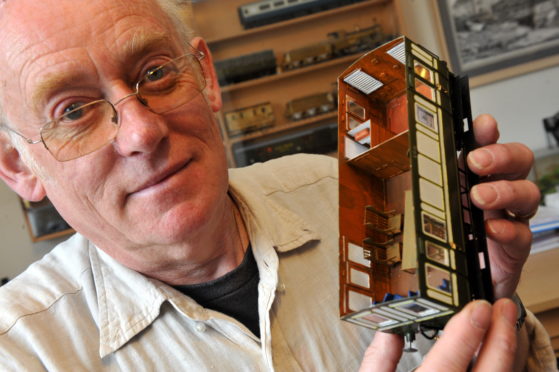Friends and family of a Moray teacher who died from a rare neurological condition will return to one of his favourite spots for a fundraising trek in his memory.
Andy Copp, from Keith, was diagnosed with corticobasal degeneration (CBD) in March 2016, which caused him to suffer from worsening mobility, poor balance and slurred speech.
After taking early retirement, the former maths teacher at Speyside High School ran a business from his home, making brass model trains using soldering irons and blow torches.
He continued that work into the late stages of his illness before his death in April last year.
Family of Mr Copp have credited his passion for locomotives for staving off the effects of the illness, which eventually required him to rely on a wheelchair, as long as possible.
Now his wife Elizabeth Copp, her sister Eileen Bevan and friend Jane Sim have organised a trek at one of her husband’s favourite locations to fund research in his memory.
Mrs Copp said: “When Andy was ill he did an online course on Hadrian’s Wall.
“He was curious about its history as he had visited youth hostels in that area with his family when he was a child.
“Before CBD changed Andy’s life, he and I had visited the Roman fort near the wall at Corbridge, on our way back from the model rail show in Telford.
“Trekking along it just seems the right thing to do.”
The trio have already raised more than £1,000 for the 25-mile expedition in September.
Money raised from the walk will support the PSP Association, which is the only charity in the UK dedicated to funding support, treatment and research into a cure for CBD and progressive supranuclear palsy (PSP).
>> Donate here <<
The charity is aiming to raise awareness of the rare conditions due to nearly half of those with them initially being incorrectly diagnosed.
Andrew Symons, chief executive of PSP Association, said: “Due to the lack of awareness and information surrounding them, people are deprived of a timely diagnosis and then, once diagnosed, have to contend with the fact that most professionals involved in their care have no knowledge about their condition.”

